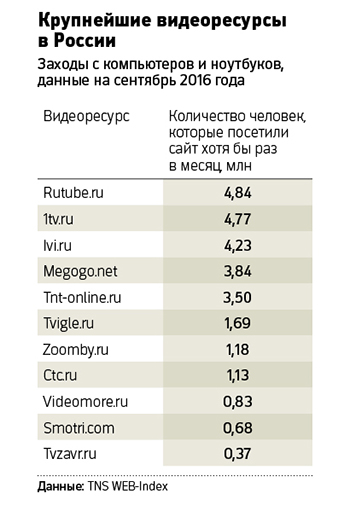Media and Communication Union plans to submit to the State Duma a new draft law on the regulation of online services

Pavel Stepanov, President of the Media Communication Union
The Media-Communication Union plans to submit to the State Duma a draft law regulating the activities of instant messengers and online cinemas in the territory of the Russian Federation. About this in an interview with the newspaper RBC told the president of the ISS Pavel Stepanov.
The MKS is a structure that includes the largest players in the media market and communications operators, such as CTC Media, Gazprom Media, operators MTS, Megafon, VimpelCom, and so on.
According to Stepanov, the modern media market, especially online broadcasts, must be settled.
')
Any legal relationship is a relationship regulated by law. And we have a block of public relations, which constitute audio-visual services, but there are no legal relations, since they are not regulated in any way.
Also according to the ISS project, the share of foreign capital in online cinemas operating in Russia cannot exceed 20%. Motivates these proportions Stepanov "protection of national content":
We create regulation not for the sake of regulation, but for the sake of creating a unified competitive environment. This is the first task.
The second task is the protection of national content. The “20 by 80” restriction is connected with this. I note that this rule will not affect sites that host user content.
The last bill of this kind, namely, the law “On Mass Media”, forced last year the Swedish holding MTG to sell its share of CTC Media to the structures of Alisher Usmanov and Ivan Tavrin for $ 200 million. A year before the bill was passed, this asset on NASDAQ was estimated at $ 1 billion.
Services with a monthly attendance of 100 or more thousand people across the country and more than 20 thousand people for a separate subject of the federation, that is, including small local online or narrowly focused sites, will fall under the possible regulation.

Source: RBC
In addition to online cinemas, the issue of instant messengers is raised in the bill. Stepanov again spoke of the mandatory identification of users, while shifting the execution of this procedure onto the shoulders of service owners.
Now most SMS messages from services such as Telegram or WhatsApp are sent via SMS aggregators. Their services, according to a representative of the QIWI payment system, cost approximately 50% cheaper, depending on the volume of mailing. But the aggregators do not have information about the owners of the numbers, as they do not issue SIM cards. Therefore, services will have to send SMS messages to telecom operators in order to identify users whose services, as already mentioned, are much more expensive. Plus, for the sake of user identification, SMS will have to be sent immediately to all major operators because of the service of number portability.
Recall all leading telecom operators are included in the ISS.
At the same time, classical media companies represented in the Union are exempt from compliance with the rules prescribed in the draft law, since they all have the status of “strategic”.
[We have withdrawn these companies from the law] so as not to create conflicts with other rules relating to strategic companies. It doesn’t matter if it’s operators or anyone else. It has its own regulatory system. There are big bills that cover several industries at once. Other large aggregators may consider this way out of the proposed regulation.
At the same time, Stepanov does not agree with a clearly traceable parallel to creating a market and profits for mobile operators, which are now actively pushing voice and text messaging services, through mandatory SMS identification.
According to the estimates of the experts of the ISS, such identification already exists in the overwhelming majority of cases, and therefore will not lead to any increase in value. Without entering a subscriber number, it is impossible to use instant messengers. Identification can be carried out via SMS or through the portal of public services.
However, the president of the ISS ignores the fact of creating favorable dominant conditions for telecom operators, who were previously preferred by SMS aggregators.
Big business has already spoken against the bill.
Vladimir Gabrielyan, Vice-President and CTO of Mail.Ru Group, directly pointed out other negative consequences for Internet companies:
Obviously, for such Russian and operating companies in Russia as Mail.Ru Group and Yandex, a ban on the participation of foreign capital is actually a ban on the creation and development of own services (even if today they do not have them and current services will derived from the test bill). It is obvious that companies, being public, will not change their shareholder structure.
In "Yandex" stated that the law in its current form can be applied to search engines, which are equated to "audio-visual services" (the term is applicable to online cinemas). In fact, this will oblige companies to pre-moderate and filter search results. In addition, any sites where users communicate, for example, forums and even sites on which it is possible to leave comments may suffer.
Source: https://habr.com/ru/post/398731/
All Articles